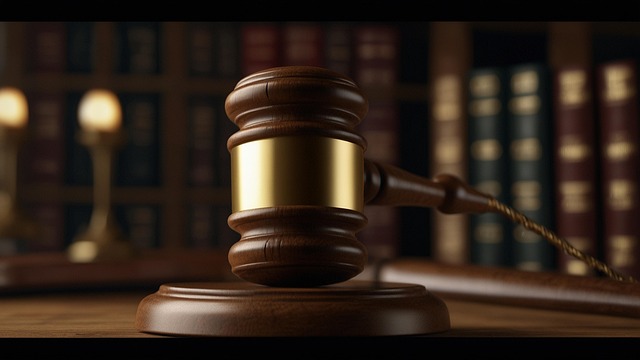Contempt of court involves willful non-compliance with court orders and can lead to severe penalties. Legal representation is crucial for understanding allegations, gathering evidence, and negotiating defenses. Preparation includes gathering evidence, studying case law, and clear communication with clients. Effective submission to the court requires structured language and relevant documentation. Skilled attorneys advocate for clients, aiming for resolutions without trial escalation. A successful defense upholds fairness, strengthens standing, and deters future violations.
“Legal representation plays a pivotal role in navigating complex contempt of court proceedings, where individuals face penalties for failing to adhere to judicial orders. This article delves into the intricacies of contempt adjustment requests, offering a comprehensive guide for understanding and defending against such allegations. We explore key definitions, the specific strategies employed by legal counsel in contempt cases, and best practices for preparing and communicating with the court. By mastering these aspects, individuals can effectively navigate these challenges.”
- Understanding Contempt of Court: Key Definitions
- Role of Legal Representation in Contempt Cases
- Preparing for Contempt Adjustment Requests
- Effective Communication with the Court
- Strategies for Negotiation and Resolution
- The Impact of Successful Legal Defense
Understanding Contempt of Court: Key Definitions

Contempt of court is a serious legal issue that refers to the willful failure or refusal to comply with a court order or to obstruct justice. It’s crucial to understand this concept, especially when navigating requests for contempt adjustments. Key definitions include ‘contempt,’ which encompasses actions like ignoring subpoenas, refusing to provide evidence, or disrupting courtroom proceedings. Additionally, ‘court order’ refers to any directive issued by a judge, such as settlement agreements, injunctions, or warrants.
Recognizing these terms is essential as contempt of court can lead to severe penalties, including fines and imprisonment. When dealing with contempt adjustment requests, individuals must comprehend their obligations under the law and ensure they fulfill the requirements set forth by the court to avoid any potential legal repercussions.
Role of Legal Representation in Contempt Cases

Legal representation plays a pivotal role in contempt of court cases, offering individuals crucial support and guidance throughout the legal process. When a party is accused of contempt, having an experienced attorney by their side is essential for navigating the complex legal landscape. Legal representatives provide expert advice, ensuring their clients understand the nature of the allegations and the potential consequences. They also play a vital role in presenting a strong defence, gathering evidence, and arguing on behalf of the individual, thereby protecting their rights and interests.
In these cases, legal counsel helps individuals articulate their side of the story effectively, interpreting complex legal terms for a non-legal party. They are adept at challenging the validity of accusations, distinguishing between technicalities and substance, and ensuring fair treatment throughout the adjustment request process. The presence of strong legal representation can significantly impact the outcome, fostering a more just and balanced resolution in contempt of court matters.
Preparing for Contempt Adjustment Requests

Preparing for a contempt of court adjustment request requires meticulous planning and an understanding of legal procedures. The first step is to gather all relevant evidence, including documents, records, and any communication that led to the alleged contemptuous behavior. Organize this information in a structured manner to present a clear narrative during the hearing. Legal representatives should also review case law and previous decisions related to similar instances of contempt to anticipate potential arguments and identify successful strategies.
Additionally, they must ensure their client understands the severity of the matter and the potential consequences. Effective communication includes explaining legal rights, options for resolution, and the importance of cooperating with the court process. This preparation phase is vital in building a robust defense or negotiating a settlement, demonstrating to the court that both parties are committed to resolving the contempt issue fairly and respectfully.
Effective Communication with the Court

Effective communication with the court is paramount in any legal proceedings, especially when making a contempt of court request. This involves clear and concise language that presents your case objectively. It’s crucial to provide all relevant information, including facts, dates, and any supporting documentation, to ensure the judge understands the context fully.
A well-crafted submission should address the specific allegations, demonstrating an understanding of the legal implications. Using a structured format, such as outlining key arguments and providing references where necessary, enhances comprehension. Remember, the goal is to facilitate a fair process, allowing the court to make an informed decision regarding the contempt adjustment request.
Strategies for Negotiation and Resolution

When facing a contempt of court charge, having skilled legal representation is invaluable for negotiating a resolution. Attorneys can help clients navigate complex legal procedures and communicate effectively with judges. One key strategy is mediation, where an impartial third party assists in reaching an agreement acceptable to both parties, potentially avoiding formal courtroom proceedings.
During negotiations, lawyers advocate for their client’s interests while considering the best possible outcome. They may employ various tactics such as presenting mitigating circumstances, proposing alternative sanctions, or offering a sincere apology along with a commitment to compliance. Effective communication and strategic thinking are essential to achieving a successful resolution without escalating the situation into a full-fledged trial.
The Impact of Successful Legal Defense

A successful legal defense in a contempt of court case can have profound implications for individuals and organizations alike. It sends a clear message that the system values due process and respects the rights of all parties involved, ensuring fairness and justice. When a defendant is acquitted or the charges are dropped, it not only clears their name but also strengthens their position in any future legal disputes.
Moreover, such outcomes can deter potential violations by demonstrating the consequences of non-compliance with court orders. This serves as a powerful incentive for parties to adhere to legal requirements, fostering a sense of accountability and encouraging respectful engagement with the judicial process. Ultimately, successful legal representation in contempt cases contributes to the integrity of the court system and reinforces its ability to uphold the rule of law.






